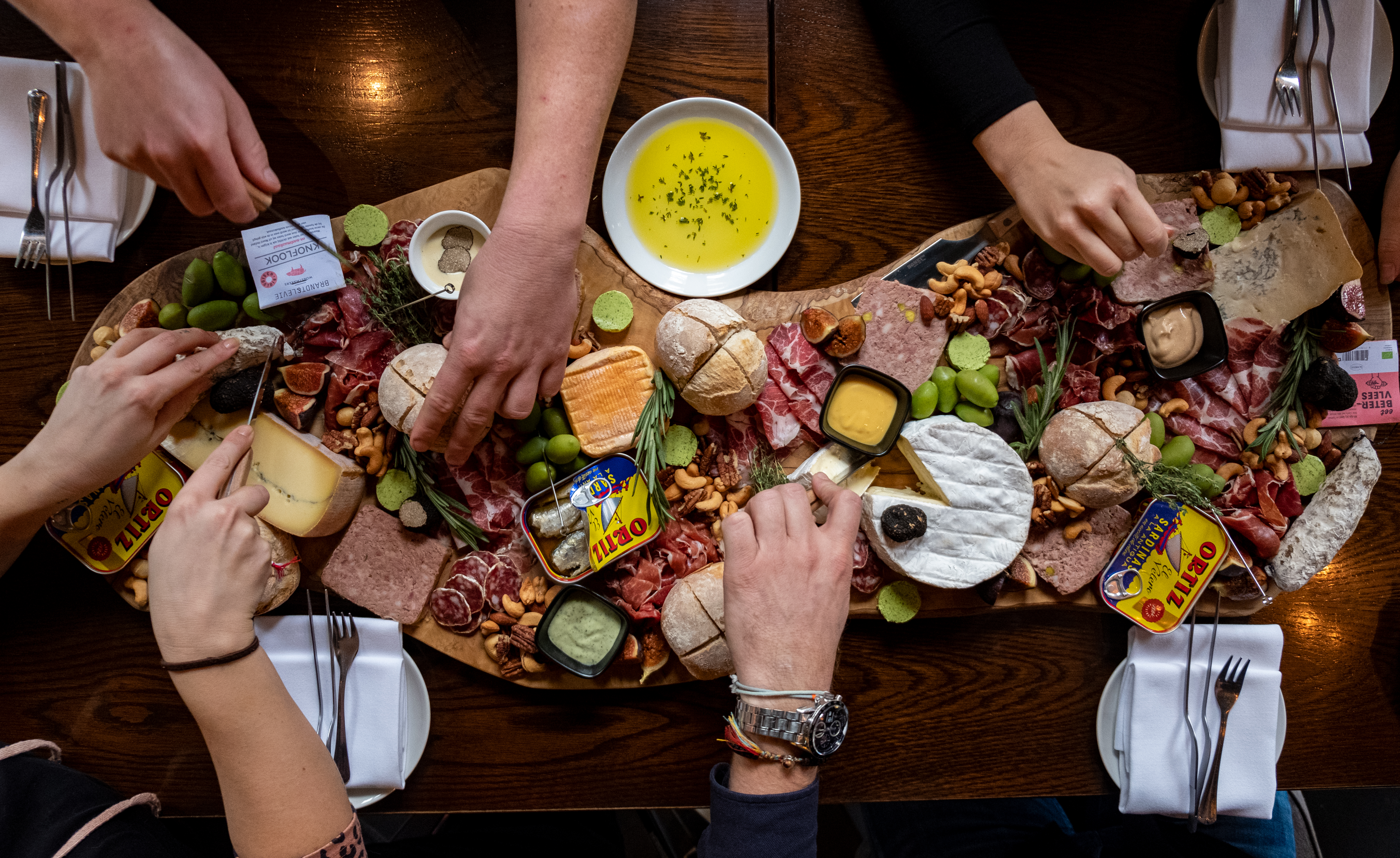Charcuterie

Charcuterie; die Kunst der Fleischdelikatessen
"Charcuterie" leitet sich von den französischen Wörtern "char" und "cuite" ab. Die wörtliche Übersetzung lautet "gekochtes Fleisch", aber verlieren Sie nicht den Appetit. Es bezieht sich auf die Art und Weise, wie Schweinefleisch zubereitet und konserviert wurde. Charcuterie gibt es schon seit Hunderten von Jahren. Sie basiert auf dem Glauben, dass keine Teile eines Tieres verschwendet werden sollten. Früher gab es keine Kühlschränke, in denen das Fleisch aufbewahrt werden konnte. Deshalb verwendeten die Wurstwarenhersteller verschiedene Methoden zur Konservierung von Schweinefleisch, wie Pökeln, Räuchern und Lufttrocknen.
Die Wurstwaren, die wir heute kennen, sind eine Kombination aus Wurstwaren, wie Schweine-, Rind-, Geflügel- und Wildfleisch. All diese Fleischdelikatessen werden zusammen auf einem Holzbrett serviert, ergänzt mit köstliche Früchte, Käse, Brot und Gewürze.
Jedes Fleisch hat seinen eigenen Schnitt und braucht sein eigenes Messer für das volle (Geschmacks-)Erlebnis. Wir haben eine Auswahl an Messern für alle Hauptkomponenten auf einem charcuterie Brett getroffen, wie z. B. ein Tranchiermesser, ein Blockmesser, ein Pastetenmesser und Wurstmesser.



